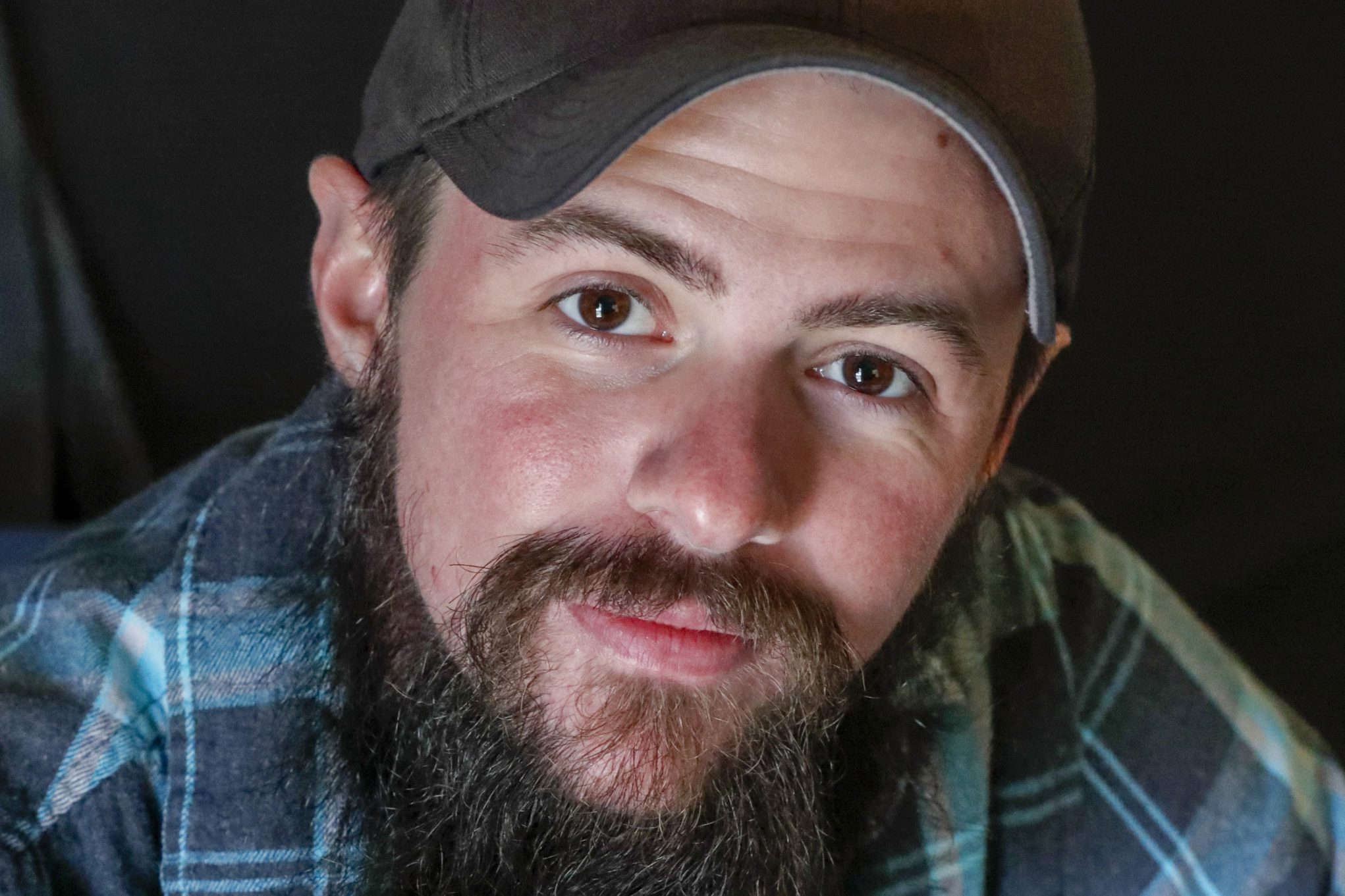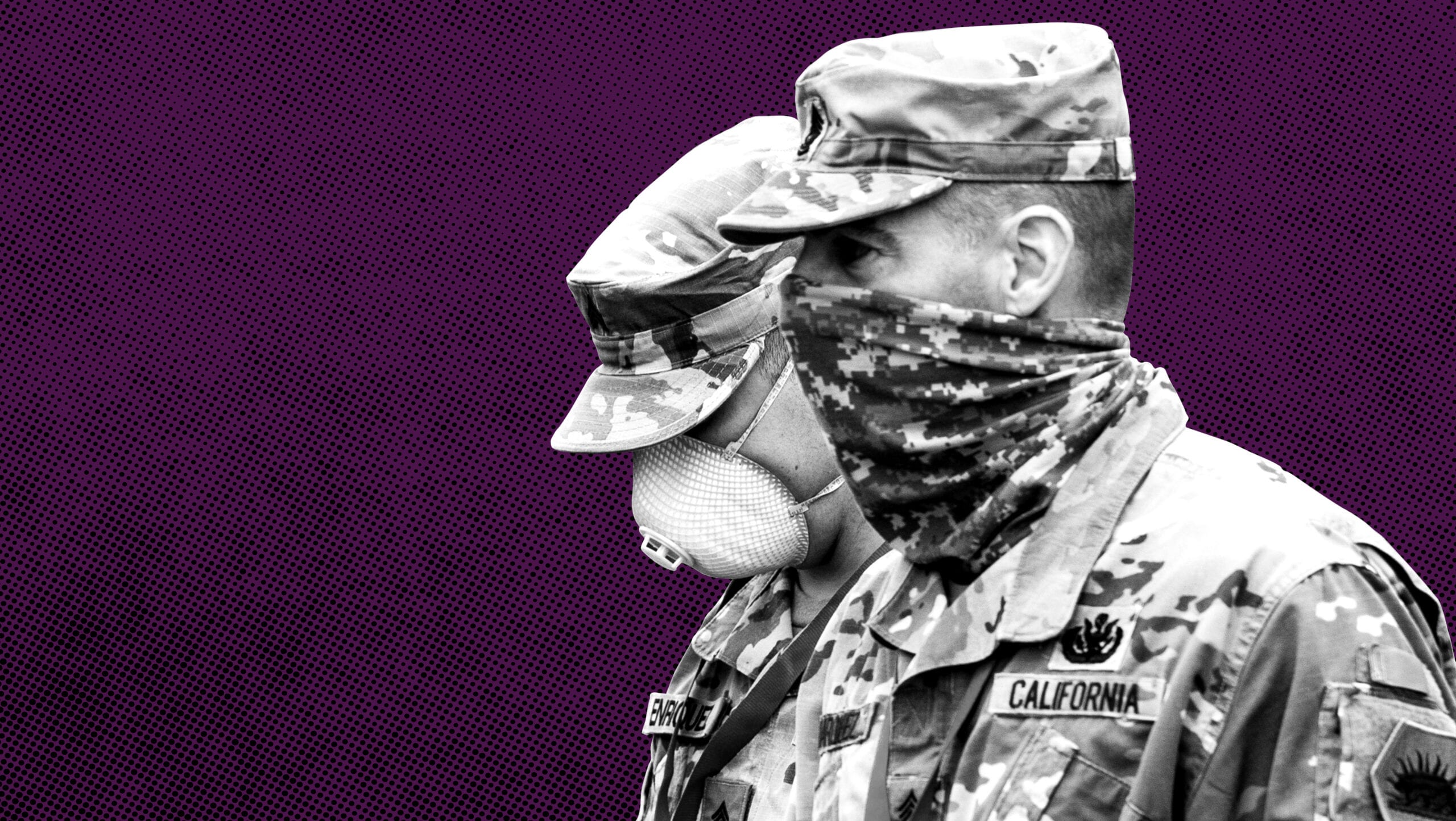Nicolas Talbott couldn’t serve his country, so he started working at Walmart. The 26-year-old, who lives with his grandparents on a farm in Lisbon, Ohio, took a job at the big-box store when he saw job postings saying “all hands on deck” were needed to help provide supplies to the community during the COVID-19 pandemic. “Anybody who is ready and willing to work, please come down and give a helping hand,” the posting read.
Talbott was recently laid off from his job as a substitute teacher at a local high school. When the school was shut down for the remainder of the year, he took a position stocking shelves nine hours a day. It’s gruelling work considering the high demand for toilet paper and hand sanitizer, but he says it’s always been his philosophy to “help anybody else when you can, to serve your family and community.”
“I’m certainly not going to become a millionaire working at Walmart, but I have enough money in my bank account to keep myself sustained and I saw that the need was there,” he says. “It’s better than sitting doing nothing when I’m perfectly capable of doing something to help.”
Talbott is in a similar position to many trans individuals across the country who have been forced onto the sidelines as the United States responds to a pandemic that has claimed over 22,000 lives nationally. After enrolling in a Reserve Officer Training Corps program in college, Talbott had hoped to serve in intelligence or security forces within the Air Force, but he was prevented from enlisting after the Pentagon implemented a ban on openly trans military service members a year ago, in April 2019.

In this Friday, March 13, 2020, photo, Nic Talbott looks up from his computer at his home in Lisbon, Ohio. Talbott was participating in an Army ROTC program after an Obama administration policy permitted transgender people already serving in the military to be allowed to do so openly. The 2019 implementation of the Trump administration's reversal of the Obama policy barred people who have undergone gender transition, such as Talbott, from enlisting. Talbott is part of a pending lawsuit seeking to overturn the ban. Credit: AP Photo/Keith Srakocic
The plan for the ban was infamously unveiled in a July 2017 tweetstorm by President Donald Trump, in which he claimed that allowing trans people to serve openly in the military would result in “tremendous medical costs and disruption.” Although the policy was initially blocked by a series of federal court rulings, the U.S. Supreme Court eventually allowed it to go into effect.
But critics say the year-old guidelines prevent qualified candidates from serving their country at a time when their help is needed most: During a crisis that is straining the U.S. healthcare system. Many hospitals are unable to meet the overwhelming need for their services as beds fill up in emergency rooms across the country. At Elmhurst Hospital Center New York City, the global epicenter of the COVID-19 pandemic, some patients reportedly died while awaiting treatment.
The military has begun to respond to this resource gap by deploying troops. Last week the Department of Defense announced that temporary field hospitals—opened in states like New York, Louisiana and Texas—would begin treating COVID-19 patients. In Arizona, Governor Doug Ducey ordered the National Guard to deliver supplies to local grocery stores.
But Trish King, federal advocacy director for the Modern Military Association of America, predicts that it will be difficult for the Pentagon to provide enough boots on the ground when the military is struggling to get people to enlist. In 2018, the Army announced it had missed its recruitment goals for the first time in 13 years, and King notes that Pentagon officials “met their goal artificially” the following year by slashing the Army’s target by 50 percent.
“There is no reason why we shouldn’t be allowed to serve at a time like this, when we continue to lose people to retirement, to leaving the military and to this COVID-19 pandemic,” King says, referencing the reported 1,500 service members who have tested positive for the virus. “I don’t think that we can afford to say that any qualified person shouldn’t be able to serve their country.”
According to the Williams Institute, a pro-LGBTQ think tank at the University of California, Los Angeles, up to 1.4 million trans adults could be eligible to enlist in the U.S. military if those restrictions were lifted, should they have no other reasons for disqualification. Not all of those people would automatically sign up for military service, but a 2014 study found that trans people are twice as likely to serve in the armed forces as members of the general population.
Some trans people, however, have been allowed to continue their military service in spite of the current ban. To avoid a discharge, trans soldiers who wished to serve in accordance with their gender identity had to receive a medical diagnosis of gender dysphoria before April 12, 2019, the day the new policy took effect.
“Up to 1.4 million trans adults could be eligible to enlist in the U.S. military if those restrictions were lifted, should they have no other reasons for disqualification”
But a recent report from SPART*A, an organization that advocates on behalf of LGBTQ service members, claims that just 1,600 trans service members qualified to be grandfathered in under the current guidelines; prior to the ban, an estimated 15,000 trans service members were serving openly. Although the military allows trans soldiers who came out after the cutoff date to apply for a waiver, there are no reports of those requests being approved.
Bree Fram, an active duty lieutenant colonel in the Air Force who sits on the board of directors at SPART*A, said the findings show trans folks are an “endangered species” in the U.S. military, but she added that those who remain in active duty are “excelling.” The organization polled 125 trans service members and found that 51 had earned medals, 26 received awards for their service and 50 were promoted in the past year.
“The challenge to us is to be out there doing our jobs, doing the mission every day, and showing that the we can do everything that’s being asked of our cisgender peers,” Fram says. “Those medals, those accomplishments, and those promotions show that again and again for the people that are out there serving today.”
But with the ban in place, the military will continue to miss out on that expertise at a time when it’s profoundly necessary. Alexandria Holder, who has been serving in the Air Force for 15 years, says these skill sets could be used to help out with everything from medical aid and transport to translation services at hospitals. A trained linguist who specializes in Arabic, Holder notes “there’s a broad range of people” who need healthcare right now, “and not all of them have English as their first language.”
“This is really a great opportunity for transgender people to be able to step up and be more visible,” she says. “To be given that opportunity back would be seen as a very positive step toward reintegrating us into American society as a whole.”
Absent the chance to serve their country, trans Americans will continue to work for the greater good in any way they can—whether it’s Dr. Rachel Wolf helping to lead Pennsylvania’s COVID-19 response team or putting on a name tag and a blue vest. But if Talbott can help distribute supplies at the neighbourhood Walmart, he says there’s no reason that he shouldn’t be able to do the exact same job for his government.
“I’m perfectly capable of being out there to play my part,” he says. “I don’t see why I shouldn’t do that.”
Note: The views expressed by Alexandria Holder are those of the speaker and do not necessarily represent the views of the Department of Defense or its components.
Legacy: April 16, 2020 3:39 pmThis story has been updated to clarify data from the organization SPART*A.


 Why you can trust Xtra
Why you can trust Xtra


